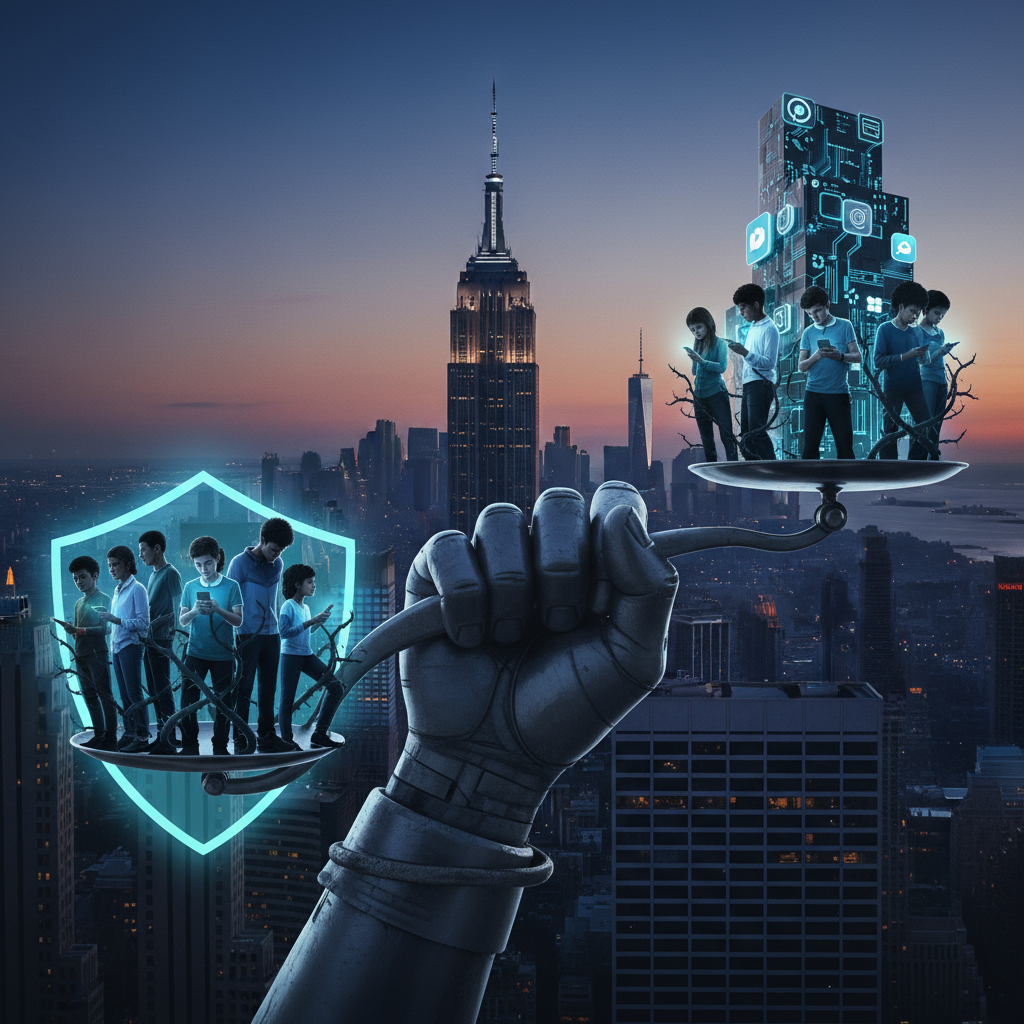New York City Takes On Big Tech: A Lawsuit for Youth Mental Health

The concrete jungle is rumbling, but this time, it’s not the subway. New York City has delivered a groundbreaking blow to some of the world’s most powerful tech companies, filing a lawsuit against social media giants like Meta (Facebook, Instagram), TikTok, YouTube, and Snapchat. The city alleges that these platforms are fueling a youth mental health crisis, citing their addictive features and harmful algorithms as a public nuisance. This isn’t just about New Yorkers; it’s a bold statement that could ignite a national conversation and reshape the digital landscape for future generations.
The Digital Dilemma: A Generation Under Siege?

For years, parents, educators, and mental health professionals have voiced concerns about the impact of social media on young minds. What began as platforms for connection and creativity has, for many, evolved into a breeding ground for anxiety, depression, and body image issues. New York City’s lawsuit points to a disturbing trend: a significant rise in mental health challenges among its youth, directly correlated with increased social media use.
The lawsuit highlights various mechanisms social media companies employ to maximize engagement, often at the expense of well-being. Think about the endless scrolling of curated feeds, the dopamine hits from likes and notifications, and the insidious comparison culture that flourishes online. These design choices, the city argues, are not accidental. They are engineered to keep users hooked, regardless of the psychological toll. The lawsuit cites a growing body of research linking excessive social media use to poor sleep, lower self-esteem, cyberbullying, and even increased rates of self-harm ideation in adolescents.
A Public Nuisance: Holding Platforms Accountable
The legal strategy employed by New York City is particularly potent: suing the social media giants for creating a “public nuisance.” This legal concept, traditionally applied to things like environmental pollution or dangerous property conditions, is now being wielded against digital products. The city argues that the platforms’ design and operation create an unreasonable interference with the public’s right to health, safety, and peace.
Mayor Eric Adams’ administration emphasizes the financial burden this mental health crisis places on the city. Increased demand for mental health services, longer wait times, and the broader societal impact of a struggling youth population all contribute to significant public costs. The lawsuit seeks not only to hold these companies financially accountable for the damages but also to compel them to redesign their platforms with youth well-being as a primary consideration. This could include things like age-appropriate content filters, stricter moderation of harmful content, and features that encourage healthy time limits.
Beyond NYC: A Ripple Effect?
New York City isn’t the first to sound the alarm, but its lawsuit carries significant weight due to its size, influence, and legal resources. Similar lawsuits have been filed by school districts and individual families across the country. However, a major metropolitan area directly challenging the tech titans on a public nuisance claim could set a powerful precedent.
What might this look like?
* Increased pressure for federal regulation: A high-profile case could galvanize legislators to create more comprehensive laws governing social media companies and their impact on children.
* Industry-wide changes: Even if the lawsuit doesn’t go to trial or settles, the threat of legal action could push platforms to proactively implement design changes that prioritize user health. We’ve already seen some platforms experiment with features like “take a break” reminders and tools to manage screen time.
* Empowerment for other municipalities: If NYC a successful outcome, it could inspire other cities and states to pursue similar legal avenues, creating a wave of accountability for Big Tech.
The tech industry, of course, isn’t taking this lying down. They often argue that their platforms offer valuable tools for connection, education, and expression, and that mental health issues are complex and multi-faceted, not solely attributable to social media. Expect a robust legal defense, potentially arguing free speech implications and the difficulty of proving causation.
Charting a Course for a Healthier Digital Future
The lawsuit brought by New York City is more than just a legal battle; it’s a critical moment in the ongoing debate about the role of technology in our lives, particularly for young people. It forces us to confront uncomfortable truths about the algorithms that shape our experiences and the design choices that prioritize engagement over well-being.
Ultimately, the goal isn’t to demonize technology but to demand a more responsible and ethical approach to its creation and deployment. Our children deserve a digital world that inspires and connects, rather than one that exploits vulnerabilities for profit. This lawsuit serves as a powerful reminder that while technology can be a force for good, it must also be wielded with profound responsibility. The outcome of this legal challenge could well determine the future health and happiness of a generation navigating an increasingly digital world.

